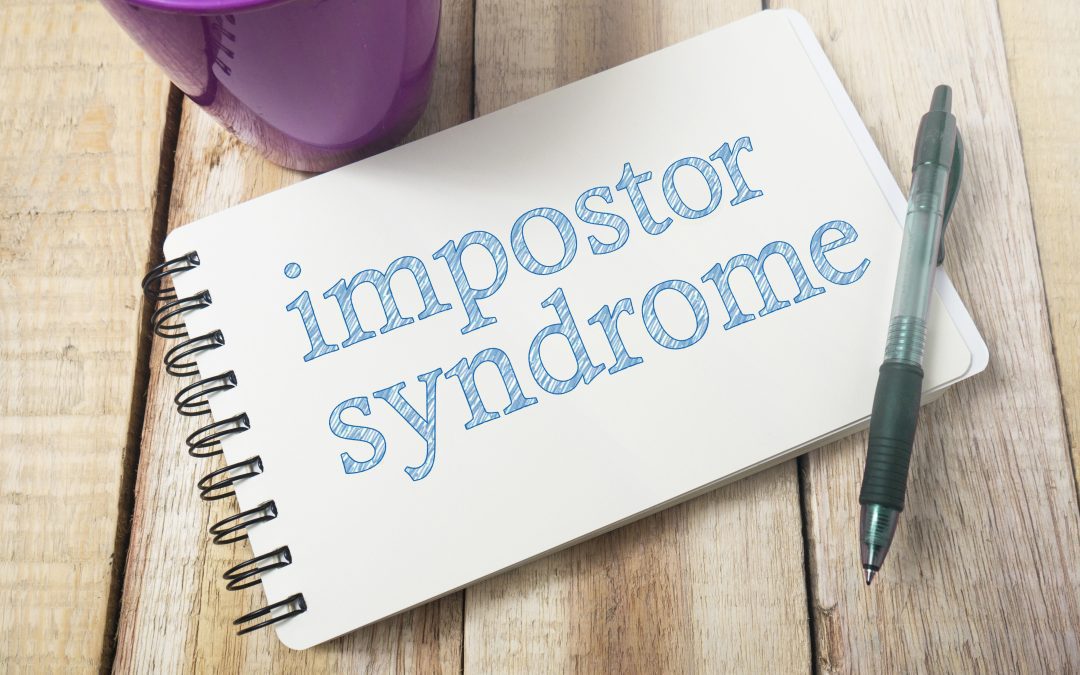How many times have you beaten yourself up because you didn’t meet your own expectations? Did you ever consider that maybe, just maybe, your expectations were unrealistic? Did you ever stop to think that these unrealistic expectations trigger you to feel inadequate or incompetent??
Well, I’ve certainly been there myself. As a recovering perfectionist, out of habit, I sometimes fabricate impossible goals and then feel like an imposter when I can’t accomplish them.
On my Badass Women of Any Age podcast, I recently interviewed Valerie Young, an expert on the imposter syndrome and author of the book, The Secret Thoughts of Successful Women, to get more information on how better understand the symptoms of the imposter syndrome and how it manifests itself in our personal and professional lives. If you’re a high-achieving, ambitious woman, you may identify with the imposter syndrome.
According to Valerie, people who feel like imposters have these unrealistic, unsustainable notions about their own competence. In other words, you might tell yourself, “if I was really intelligent, capable, competent, qualified, I’d never make a mistake. I’d never be confused.”
Or “I read it once and believe that the first time I should do everything perfectly. I’ll never fail. I’ll always be confident.”
Yikes, why do we do this to ourselves? Why do we set ourselves up to feel like imposters?
Valerie helped me clarify how people judge their competence and how this can trigger imposter feelings. According to Valerie, there are five competence types, and once you understand your type, for instance if you’re the perfectionist, you know that person, because it’s all always about shame – shame and failure. But we don’t all feel shame the same way because we don’t all define competence in the same way.
If you’re a perfectionist, 99 out of a hundred is going to be failure to you. You know, making a presentation and leaving the meeting and realize you forgot to make some minor point and you’ll beat yourself up endlessly.
Next, there’s the person who is the expert. It doesn’t mean they are an expert at that. They’re defining their competence, not so much on the quality of their work. It’s not that that’s not important, but it’s about the quantity of knowledge and information that they know in their mind they can never know enough. So that’s where you see the person who doesn’t apply for the job, because she looks at the 10 requirements and goes, Oh, I only have six. Right? I’m not going to throw my hat into the ring. They’re always getting like one more degree, one more sort of vocation – endless pursuit of the end of knowledge waiting to wake up. Then I’m an expert.
Then there’s the natural genius. The fact that they have to struggle to master something or maybe understand something kind of proves they’re an imposter. Because they define competence as being about ease and speed. And they might’ve sailed through school, for example, and things came pretty easily and then they slammed into something that was hard and they just don’t know what to do about it. So, the fact that it’s not easy proves they must be an imposter.
There’s a soloist who thinks I have to do it all by myself. They don’t ask for help; mentoring, coaching, or advice.
And then there’s the superwoman/superman, or at a university it could be the super student who not only judges themselves, and these very high standards in their professional or academic life, but in all the other different roles that they play in their life. Lots of opportunity to feel shame when you set that bar unrealistically high.
What makes me feel a little better is that Valerie said very accomplished and ambitious women like Madeline Albright, for example, can often feel like imposters. I think I’m in good company!
Have you identified what, if anything, triggers your feelings of inadequacy?
To hear the full interview and more information about imposter syndrome, listen to the podcast now.

I am very good at what I am good at. And very terrible at the things I never accomplished. I am a great writer, public speaker, sales person, teacher. I CANNOT do great on the computer, math, directions to locations, I know what I can do. I accept what I can’t do. That does not mean, in a corporate environment I don’t use the computer, I don’t drive to a place. As a salesperson I had to learn how to find locations, I don’t lie about my abilities or non abilities. I let people know if I am comfortable with something. If I am not, I compensate by leaving early so I don’t get lost, or doing the basics on the computer that is required for the job, or I ask for help. If I had been in school after 1968, I believe I would be diagnosed as learning disabled. The highs and the lows on my SATs, I’ve also been uncomfortable with Math, except when I need to add up what I make on an order. I can do that in minutes.